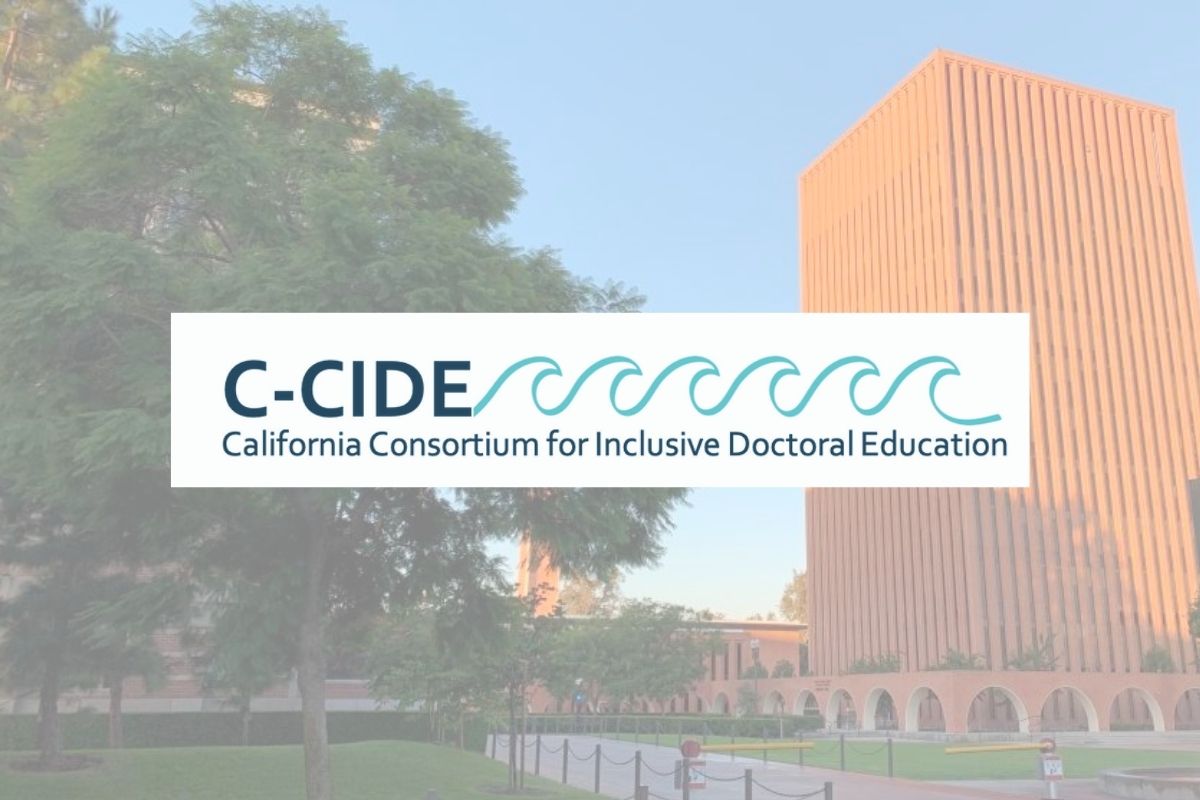
C-CIDE Event Marks Beginning of New Phase for Forward-Looking Consortium
A recent event for California Consortium for Inclusive Doctoral Education (C-CIDE) created an opportunity for teams from six campuses to learn from each other how to change current admission policies and practices to address racial and gender inequalities in STEM PhD programs.
C-CIDE, a National Science Foundation-funded network of doctoral-granting universities and member departments, aims to improve how graduate programs in California admit and educate the next generation of scientists and engineers. There is presently almost no infrastructure for faculty to learn the skills and knowledge required to effectively select and serve students, especially students from minoritized backgrounds. This project, through a research-practice partnership led by Pullias professor Julie Posselt, aims to change that by supporting the development of a sustainable system of faculty-to-faculty professional development opportunities. Topics of current and future professional development include equity in admissions, fostering well-being in racialized mentoring environments, systemic change at the department level, and more.
Following two years of consortium development within and across C-CIDE campuses, including11 workshops, the purpose of the recent event was to launch a new phase of the project: the formation and action planning of campus level teams. “One of the primary goals of the kickoff event was to provide a space for the campus teams to meet and engage with colleagues across California that share common concerns,” shares Maria Romero Morales, C-CIDE Consortium Facilitator. “There’s a true intent in having conversations around how to address widely recognized problems concerning racial inequity in STEM.”
C-CIDE includes five University of California campuses–Berkeley, Davis, Irvine, Santa Barbara and San Diego–and University of Southern California. Within these institutions, 24 programs across STEM are currently affiliated with the project. Theresa E. Hernandez, a Pullias Center doctoral candidate, led the development and facilitation of a planning exercise for the campus teams. “We’ve been laying the foundation for these communities for a while, so I was just excited to finally bring the campus teams together and provide some scaffolding for them to reflect on and plan the work that needs to be done,” she admits. “It was great to be a part of the discussions that these campuses were having about defining the problems and goals they will tackle to make graduate education more racially and gender equitable.”
The reflection and planning process will lead the campus-teams to further explore ways to develop metrics of success in moving toward improving equity and inclusion in their respective programs. The Pullias C-CIDE team is looking forward to continued collaboration with the campus teams and will provide background knowledge and support as they work to discover promising practices for recruiting, admitting, and mentoring graduate students from historically underrepresented backgrounds.
Visit the California Consortium for Inclusive Doctoral Education page or access the C-CIDE Overview narrated presentation deck for more information about the project.